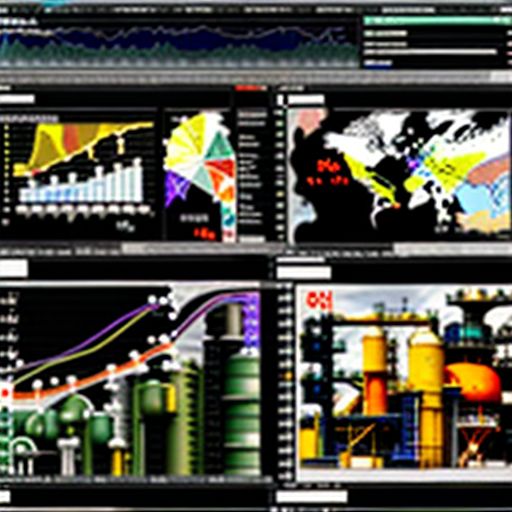The oil and gas industry is a complex and demanding field, constantly challenged by fluctuating prices, stringent regulations, and the need for efficient operations. To navigate these challenges, companies are increasingly turning to Enterprise Resource Planning (ERP) systems specifically designed for the oil and gas sector.
Understanding ERP in the Oil and Gas Industry
What is Erp Oil And Gas?
Erp Oil And Gas refers to software solutions tailored to meet the unique requirements of upstream, midstream, and downstream oil and gas operations. These systems integrate all facets of a business, from exploration and production to refining, distribution, and financial management.
Why is ERP Crucial for Oil and Gas Companies?
The importance of ERP in oil and gas stems from its ability to streamline processes, enhance visibility, and drive better decision-making. Let’s delve deeper into the key benefits:
- Improved Operational Efficiency: ERP systems automate tasks, reduce manual errors, and optimize workflows, leading to increased productivity and reduced operational costs.
- Real-time Data Visibility: With a centralized database, ERP provides a unified view of all operations, enabling informed and timely decisions.
- Enhanced Collaboration: By breaking down data silos, ERP fosters better communication and collaboration among departments, improving overall efficiency.
- Regulatory Compliance: Oil and gas ERP systems often include features that help companies comply with industry regulations and reporting requirements.
- Risk Management: By providing real-time data and analysis, ERP enables companies to identify and mitigate potential risks more effectively.
erp.backinhtravel.com/wp-content/uploads/2024/07/oil-and-gas-erp-dashboard-669a57.jpg" alt="Oil and Gas ERP Dashboard" width="512" height="512">Oil and Gas ERP Dashboard
Key Features of Oil and Gas ERP Software
Oil and gas ERP systems typically offer a wide range of modules and features, including:
- Exploration and Production: Lease management, well lifecycle management, drilling and completion, production forecasting, and reservoir engineering.
- Supply Chain Management: Procurement, inventory management, transportation, logistics, and contract management.
- Refining and Processing: Refinery planning and scheduling, blend optimization, quality control, and yield accounting.
- Financial Management: Accounting, budgeting, financial reporting, and regulatory compliance.
- Health, Safety, and Environment (HSE): Incident management, risk assessment, permit to work, and environmental monitoring.
FAQs about Erp Oil And Gas
- What are the challenges of implementing an ERP system in the oil and gas industry? Implementing an ERP system can be complex and challenging, requiring significant planning, resources, and change management. Data migration, system integration, user adoption, and customization can pose significant hurdles.
- How long does it take to implement an oil and gas ERP system? The implementation timeline varies depending on factors such as the size and complexity of the organization, the scope of the project, and the chosen ERP solution. Implementations can range from several months to a year or more.
- What are the leading ERP vendors for the oil and gas industry? Some of the prominent ERP vendors catering to the oil and gas sector include SAP, Oracle, Infor, IFS, and Epicor, each offering tailored solutions for the industry.
Conclusion
In conclusion, ERP oil and gas systems play a critical role in optimizing operations, improving efficiency, and enabling informed decision-making within this dynamic industry. By integrating all aspects of the business, from upstream to downstream, ERP empowers oil and gas companies to navigate challenges, stay competitive, and thrive in the ever-evolving energy landscape.
We encourage you to share your thoughts and experiences with ERP in the oil and gas sector in the comments below. Have you implemented an ERP system? What challenges have you faced, and what benefits have you observed? Let’s continue the conversation!
